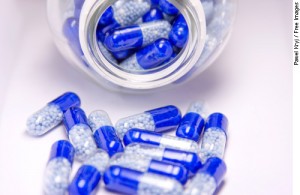EDSON LUIZ VISMONA President of the National Forum Against Piracy (FNCP) and Instituto Brasil Legal
EVANDRO DO CARMO GUIMARÃES Executive President of the Brazilian Institute of Competition Ethics (ETCO)
Piracy, counterfeiting and smuggling of the most diverse consumer goods have been increasing in Brazil and are present in the daily lives of Brazilians, reaching the most diverse productive sectors: medicines, clothing, cigarettes, toys, drinks, optical products, CDs, DVDs and an endless list that arrives at homes without control and with risks to the health of each citizen.
Sometimes society has a hard time understanding the damage caused by these illegal activities. If we consider, for example, the 13 sectors of the economy most impacted, as demonstrated by the National Forum Against Piracy and Illegality (FNCP), the accumulated losses reached RS 24,5 billion in 2012. For 2013, the data in the final stage of survey point to more than RS 30 billion. Not to mention tax evasion, loss of formal jobs and the worrying fact that consumers are at the mercy of products harmful to health.
In a study conducted by the State University of Ponta Grossa with contraband cigarettes (which are not subject to inspection), the health control agency verified the presence of heavy metals in large quantities, increasing the risks for consumers. The same occurs with drugs, especially those aimed at combating more complex diseases, which, because they are more expensive, attract criminals who sell placebos as if they have an active element.
What many are also unaware of is that the trade in illegal products is linked to a series of much more serious crimes, such as trafficking in arms, ammunition and drugs, money laundering, theft, kidnapping and human trafficking. Behind the purchases made in street vendors, there is the performance of sophisticated criminal networks that move billionaire sums supplying illegal products - in the city of São Paulo alone, between 2010 and 2012, more than RS 2 billion in goods were seized. In the Federal District, in 2013, 1,23 million.
The financial movement overcomes drug trafficking and fuels crime in the most profound actions. Not only. It directly affects industry and commerce, which have rules to ensure the safety and reliability of products, in addition to being the tool for sustaining millions of legal workers.
Another serious problem is the Brazilian borders, which need to stop being land without law. For that to happen, specific actions are not enough. It takes coordinated action by governments at all levels, and work on the most diverse fronts to make criminal activities that undermine the country's security unfeasible.
In an election year in which we have the challenge of electing president, governors, senators, state and federal deputies, and in a political scenario in full swing, the Brazilian Institute of Competitive Ethics (ETCO) and the National Forum Against Piracy and Illegality ( FNCP), along with productive sectors of the economy, decided not to be oblivious to the debate. The theme is complex and involves several aspects, such as border security, the defense of consumers' rights and health, the protection of the national industry against unfair competition and the preservation of the consumer market.
In this sense, we call on candidates to make commitments that guarantee rights and combat unacceptable misconduct in a country with territorial, population and economic dimensions like the Brazilian ones, in order to protect the internal market. We propose to future governments a systematic effort to combat smuggling, piracy and counterfeiting in order to defend industry and national trade.
The reality of illegal trade in Brazil has reached a level that requires a change in posture not only by the authorities, but by the whole of society. We need intelligence, tenacity, political and administrative will to protect the internal market. Our commitment is to defend national interests and fight against all types of illegality.
Source: Correio Braziliense newspaper
Click here and check the entire letter of commitment
Read also In defense of the Brazilian legal market




